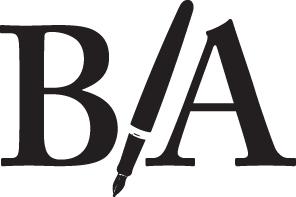Reading List: March 2021
My reading goal is 60 books per year.
I’ve hit 17 so far in Q1 2021, with three in progress. So, on track.
I thought it might be helpful to share a few of the books I have found most useful or interesting. I don’t know what people like to read — and I’ve thought about doing more in depth book summaries. Let me know in the comments if that’s something you’d be interested in reading here.
My nonfiction reading for 2021 has more or less landed in three categories.
Faith and Work
A trinity of books make up this section.
Art and Faith: A Theology of Making by Makoto Fujimura
Surprised by Hope by N.T. Wright
Every Good Endeavor by Tim Keller
This was some truly transformative reading, and I highly recommend it. The artificial and unbiblical sacred/secular duality is treacherous ground. These books shoot down the notion that some jobs (i.e., pastor, missionary, Bible teacher) or more holy than others (i.e., designer, tree surgeon, barista). A good theology of the resurrection puts that supposition 10 feet underground without hope of resuscitation.
Another candidate for this category was was a book called Garden City: Work, Rest, and the Art of Being Human by John Mark Comer — which was also good. It was essentially N.T. Wright and Tim Keller lite. While, of the four, it’s the one I liked the least — this might be a good one for toe-dipping in the waters of faith and work.
Faith and Social Issues
As in years past, this is an important part of my reading schedule. A significant part of my work sits at the intersection of faith, work, and social good. These are potentially controversial reads in the super-charged, electric air of the US Evangelical Church. Controversial reads help us all grow.
The John Mark Comer book mentioned above fits loosely in this category. But the two bombshell books I’ve read this year in this area are Mediocre: The Dangerous Legacy of White Male America by Ljeoma Oluo and Jesus and John Wayne: How White Evangelicals Corrupted a Faith and Fractured a Nation by Kristen Kobes Du Mez. I recommend both of these, even though they will probably be uncomfortable for some (especially if you are white, male, Evangelical or any combination thereof). But the discomfort is important. The state of the US and the Church in the US is a current dumpster fire. I’m personally convinced the best thing we can do is read widely on this topic, read long-form on this topic, and read nothing published by anyone on Facebook on this topic. Full stop.
Storytelling
There is always a book about writing, creativity, or storytelling in my docket. Two titles have given me pause this year, so far.
Story: Substance, Structure, Style, and the Principles of Screenwriting by Robert McKee
TED Talks: The Official TED Guide to Public Speaking by Chris Anderson
I’ve never written a screenplay and I do very little public speaking anymore (although, I’d like that to change post-pandemic). But both of these books are helping my writing. McKee will change the way you binge Netflix. It gives you the tools to analyze why a show isn’t working for you. I realized as I read this that McKee is a primary source for Shawn Coyne’s The Story Grid.
I read the TED talk book because I’m turning the topic of my WIP (A leadership book) into a TED-like talk. This is helping me get crystal clear on the book’s big idea and main points. I may record and publish what I come up with here. So stay tuned.
Finally Fiction
I’m still working through the nine book series of The Expanse by James S.A. Corey. I just finished Babylon’s Ashes — which is book 6. My plan is to read the short story called Strange Dogs before diving into the final trilogy of the series. This is definitely some of the best sci-fi story telling I’ve ever read. There is character depth, plot complexity, and ongoing social issues that make is a really fun read. If you’re not ready for a nine book commitment, I recommend “The Expanse” on Amazon Prime. There are 5 seasons, currently. Season 1 starts slow, but it’s what hooked me on the books (which, as always, are better).
The other bit of quirky fiction I read earlier this year is Drive Your Plow Over the Bones of the Dead by Olga Tokarczuk. This is a mystery set in the Polish countryside, near the border of the Czech Republic. This book caught my attention because of the setting. This is a part of the world Reneé and I enjoyed visiting in 2014. We took a bus (or a train? I can’t remember which) right through the area, traveling from Prague to Wroclaw. The characters are alive. Being in the head of the protagonist was a wild ride. It’s a great story, if mystery is a genre you enjoy.
That sums it up for Q1 2021. I’m sure I’ll mention things I’m reading as I go — but will post something like this after Q2.
You can follow me on Goodreads, if you do that.
All links are affiliate links. If enough of you order any of these books with the link provided, a portion of the sale will help support my book habit.
